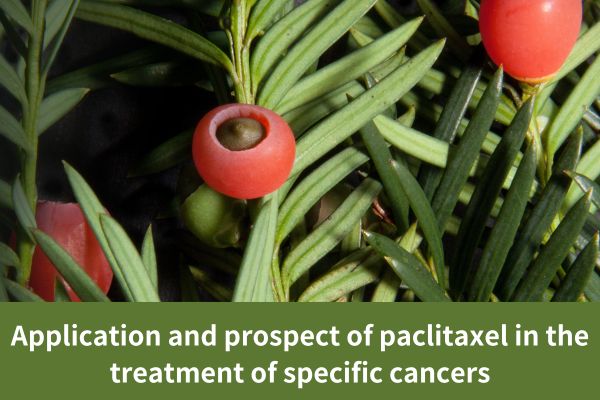Paclitaxel, as a highly effective anticancer drug, has been widely used in the clinic in the past few decades. Its unique anti-cancer mechanism and remarkable efficacy make it occupy an important position in the field of cancer treatment. However, the application of paclitaxel is not limited to all types of cancer, and its application in the treatment of specific cancers has more profound significance. This article will discuss the current status and future prospects of paclitaxel in the treatment of specific cancers.
Breast cancer is one of the most common malignant tumors in women, with high morbidity and mortality. Paclitaxel, as one of the commonly used drugs in the treatment of breast cancer, can induce apoptosis mainly by inhibiting microtubule depolymerization and cell division. A large number of clinical studies have demonstrated the efficacy of paclitaxel in the treatment of breast cancer, especially when combined with anthracyclines, which can significantly improve patient survival. However, long-term use of paclitaxel may lead to the emergence of resistance, so further study of its resistance mechanisms is needed to find new drug combinations and treatment strategies.
Ovarian cancer is one of the diseases with the highest mortality rate among gynecological tumors. Because the early symptoms of ovarian cancer are not obvious, most patients are already in the advanced stage when diagnosed, and the prognosis is poor. Paclitaxel has also shown significant efficacy in the treatment of ovarian cancer, especially epithelial ovarian cancer. By combining with other drugs, such as platinum-based drugs, the efficacy can be further improved and the survival of patients can be extended. However, for recurrent and drug-resistant ovarian cancer, the efficacy of paclitaxel is limited, and new therapeutic strategies need to be further explored.
Lung cancer is one of the malignant tumors with the highest morbidity and mortality worldwide. Non-small cell lung cancer is the most common type of lung cancer, accounting for more than 80%. Paclitaxel has shown some efficacy in the treatment of non-small cell lung cancer, especially for squamous cell carcinoma and adenocarcinoma. Clinical studies have shown that paclitaxel combined with platinum drugs can prolong survival and improve quality of life in patients. However, for drug-resistant and metastatic lung cancer, the therapeutic effect of paclitaxel is limited, and new drugs and treatments need to be further explored.
In addition to breast, ovarian, and lung cancer, paclitaxel has shown some efficacy in the treatment of other specific cancers such as colorectal, stomach, and liver cancer. However, due to the heterogeneity and individual differences in cancer, different patients respond differently to paclitaxel treatment. Therefore, individual evaluation of the efficacy and side effects of paclitaxel is essential.
With the rapid development of genomics, proteomics and immunology, new targeted therapies and immunotherapy provide more options for cancer treatment. Combining paclitaxel with other novel drugs or treatments, such as immune checkpoint inhibitors, gene therapy, etc., may provide a more effective regimen for the treatment of specific cancers. In addition, the study of paclitaxel resistance is also one of the important research directions at present, aiming to overcome the problem of drug resistance caused by long-term use of paclitaxel.
In summary, paclitaxel has important application value in the treatment of specific cancers. However, how to make better use of the efficacy of paclitaxel and reduce its side effects still needs further research and exploration. With the continuous advancement of technology and the emergence of new treatment methods, we have reason to believe that in the future, there will be more efficient and safe treatment options for patients with specific cancers.
Note: The potential benefits and applications presented in this article are derived from the published literature.
Yunnan Hande Biotechnology Co., Ltd. has been focusing on the production of paclitaxel for 30 years, and can provide high-quality natural paclitaxel, 10-DAB semi-synthetic paclitaxel, 10-DABIII, docetaxel, cabataxel, ecdysone, impurities, standards, intermediates and other products for a long time. Redefine the new concept of product customization, provide product cycle quality regulations, after-sales service, for you to open up the global market more than a guarantee. Feel free to contact us.
Post time: Dec-25-2023
